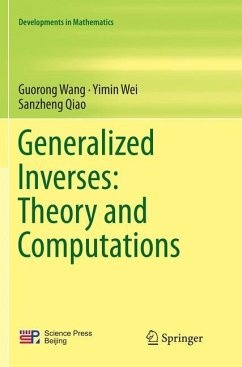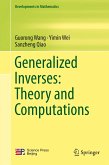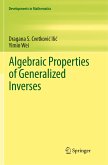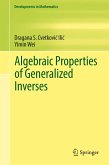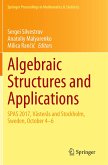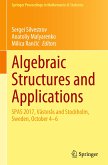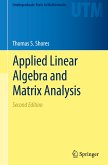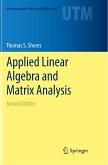This book begins with the fundamentals of the generalized inverses, then moves to more advanced topics.
It presents a theoretical study of the generalization of Cramer's rule, determinant representations of the generalized inverses, reverse order law of the generalized inverses of a matrix product, structures of the generalized inverses of structured matrices, parallel computation of the generalized inverses, perturbation analysis of the generalized inverses, an algorithmic study of the computational methods for the full-rank factorization of a generalized inverse, generalized singular value decomposition, imbedding method, finite method, generalized inverses of polynomial matrices, and generalized inverses of linear operators. This book is intended for researchers, postdocs, and graduate students in the area of the generalized inverses with an undergraduate-level understanding of linear algebra.
It presents a theoretical study of the generalization of Cramer's rule, determinant representations of the generalized inverses, reverse order law of the generalized inverses of a matrix product, structures of the generalized inverses of structured matrices, parallel computation of the generalized inverses, perturbation analysis of the generalized inverses, an algorithmic study of the computational methods for the full-rank factorization of a generalized inverse, generalized singular value decomposition, imbedding method, finite method, generalized inverses of polynomial matrices, and generalized inverses of linear operators. This book is intended for researchers, postdocs, and graduate students in the area of the generalized inverses with an undergraduate-level understanding of linear algebra.
"The book presents a theoretical study of the generalization of Cramer's rule and determinant representations, reverse order laws of matrix products, parallel computations, perturbation analysis, weighted Moore-Penrose inverses, factorization methods, singular value decompositions, embedding methods, finite methods for generalized inverses. Each chapter ends with remarks and a list of related references. The book can be useful for graduate students having a good background in linear algebra and researchers interested in inversion problems." (Mohammad Sal Moslehian, zbMATH 1395.15002, 2018)

